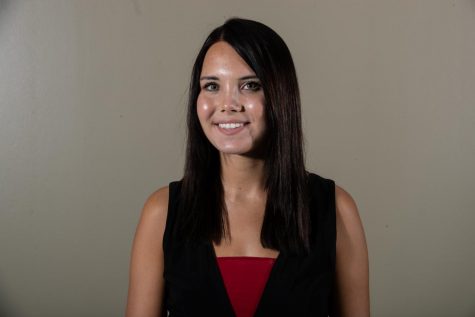Firm sues ACT for disclosing confidential and sensitive information about test-takers
A California law firm has sued the Iowa City company for illegal disclosure of test takers’ mental and physical disabilities.
The ACT sign is seen outside of the ACT Headquarters on Monday, March 5, 2018.
September 20, 2018
Standardized-test giant ACT has been sued on the behalf of many students with disabilities in California, Nevada, and Colorado whose private information about their condition was listed with their ACT test scores.
The Iowa City company is under fire for potentially violating the Americans with Disability Act, the right to privacy, the Unfair Competition Law, and the Rehabilitation Act of 1973, as well as individual state civil codes.
The Los Angeles law firm Panish Shea & Boyle LLP said ACT is illegally requesting and acquiring disability statuses of test-takers by asking them to fill out forms without a guardian or teacher present for disability accommodations, according to court documents. The firm claims the request for the accommodation form is actually using this information to make money.
It is normally noted on test results that students have used accommodations, which is legal. An exhibit in the lawsuit stated that it records if the student has a disability, but it is illegal to release that information.
The lawsuit claims ACT is competing against other standardized tests, such as the SAT, by providing information about physical and learning disabilities.
“[ACT] will help them ‘remove the guesswork,’ ‘target their recruiting efforts,’ ‘evaluate incoming students to make sure they have the tools to succeed,’ and ‘retain and graduate more students,’ the lawsuit stated.
The lawsuit also quoted the U.S. Bureau of Labor that “26 percent of Americans with disabilities with a bachelor’s degree were employed in 2016, compared to 16 percent of those with no more than a high-school degree.”
ACT representative Ed Colby said it does not comment on pending litigation.
RELATED: Uptown Bill’s, a community for all abilities, in danger of closing
“ACT’s general policy is to provide individually identifiable information to the third party only at the direction of the individual or after the individual has been provided notice and an opportunity to opt out of such sharing,” he said.
Hailey Teusink, a third-year University of Iowa student who has autism, used the accommodation services provided for taking the ACT. She believes releasing the confidential information involved in this case will affect students, especially high-schoolers, because they will start developing self-esteem issues.
“Autistic people don’t start out with internalized ‘ableism,’” Teusink said. “They are taught ‘ableism.’ They are taught to hate themselves for being disabled.”
Teusink said she would be mad if her disability were revealed to third-parties without her consent.
“I am autistic and proud of it, but I should be the one who chooses to ‘come out’ as a disabled person,” she said. “Not my parents, not my friends, not some random third-party like the ACT.”
As someone with a disability, Teusink said, the best thing for ACT to do would be to apologize. If ACT ends up being found liable, an apology would at least make the students feel safer, she said.

















